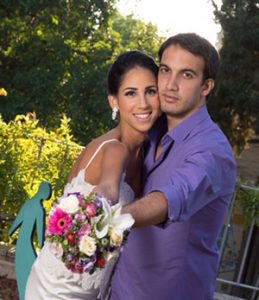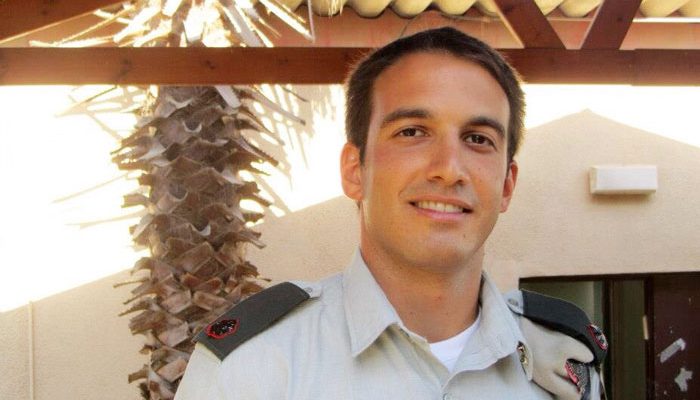In the quiet town of Ma’alot, Ofir Anidjar grew up surrounded by family, community, and a deep love for Israel. Life in the northern part of the country was often interrupted by the threat of Katyusha rockets fired from across the border in Lebanon. But even amidst the constant uncertainty, Ofir developed a profound sense of Zionism and a deep admiration for those who served in the Israeli Defense Forces (IDF). Watching his father leave each year for miluim (army reserves) in his uniform planted the seeds of a lifelong dedication to protecting his homeland.
A Decade of Service: From Officer to Major
In 2003, Ofir began his journey as an officer in the Engineering Corps of the IDF. He worked primarily with bulldozers and tractors, always at the front lines, ensuring the safety of his fellow soldiers. His dedication and skill saw him through some of the most intense conflicts Israel has faced.
When Gilad Shalit was kidnapped in 2006, Ofir was among the first to enter Gaza as part of the IDF’s mission to respond. Just a week later, the abduction of reservists Ehud Goldwasser and Eldad Regev by Hezbollah marked the beginning of the Second Lebanon War, and Ofir’s unit was urgently redirected to Lebanon.
Over the next ten years, Ofir would serve in numerous combat missions, including the Second Lebanon War and various military operations. In 2013, after a decade of dedicated service, he retired with the rank of Major. Soon after, he met Shai, his future wife, who had also served as a platoon commander in the IDF.
Operation Protective Edge: A Turning Point
In July 2014, with the onset of Operation Protective Edge, Ofir was called back to duty as a reservist for the first time since his discharge. His mission was to locate and dismantle tunnels on the Gaza border—one of the most dangerous assignments in the operation.
While patrolling the border, his unit was ambushed by terrorists who launched a Kornet missile at his team. Ofir was severely wounded along with several of his soldiers. He has no clear memory of the rescue, but the aftermath would change his life forever.
The injuries left him with shrapnel wounds across his body, particularly his leg, and confined him to a wheelchair during the initial stages of his recovery. But perhaps the most challenging battles were the invisible scars left by the trauma.
Love and Determination: Shai and Ofir’s Wedding
Amidst his recovery, Ofir and Shai were faced with a difficult decision. They were planning their wedding, but with Ofir confined to a wheelchair, they considered postponing the celebration. However, one of Ofir’s doctors encouraged him to make standing at his wedding a goal to work toward. And that’s exactly what he did.
With unwavering determination and Shai’s support, Ofir stood on his own two feet on October 6, 2014, as they exchanged vows. It was a powerful moment, symbolizing their resilience and commitment to facing challenges together.
Living with PTSD: The Road to Healing
 Even after their beautiful wedding, Ofir continued to struggle with the aftermath of his injuries. He was diagnosed with Post-Traumatic Stress Disorder (PTSD), which manifests in various ways: sensitivity to loud noises, chronic pain, dizziness, and severe insomnia—sleeping only 2-3 hours a night. The psychological wounds were deep, leading to bouts of depression and withdrawal from everyday life.
Even after their beautiful wedding, Ofir continued to struggle with the aftermath of his injuries. He was diagnosed with Post-Traumatic Stress Disorder (PTSD), which manifests in various ways: sensitivity to loud noises, chronic pain, dizziness, and severe insomnia—sleeping only 2-3 hours a night. The psychological wounds were deep, leading to bouts of depression and withdrawal from everyday life.
Shai, his loving wife, stood by him through it all, sharing in his pain and supporting him through the darkest times. But they both knew they needed more help to move forward.
A Second Home: Finding Hope at Beit Halochem
The turning point in Ofir’s journey came when he discovered Beit Halochem. Here, PTSD is recognized as a chronic, debilitating condition that requires both understanding and specialized treatment. Ofir found a community that truly understood his struggles and provided him with the tools to begin his journey of healing.
“When I was introduced to Beit Halochem, despite my pain and invisible scars, many good things started to happen,” Ofir shares. “Thanks to Beit Halochem, I was able to restart my life with my beautiful and loving wife by my side… Beit Halochem is our second home. They listen, but most of all, they embrace and understand.”
At Beit Halochem, Ofir participates in various therapeutic treatments:
- Physiotherapy and Hydrotherapy: Helping him regain mobility and reduce pain.
- Fitness Programs: Allowing him to rebuild strength and maintain his physical health.
- Young Veterans Programs: Providing a sense of community and purpose as he helps guide younger veterans on their own journeys to recovery.
Looking Forward: A New Chapter for Ofir and Shai
Today, Ofir is not just focused on his physical recovery but also on building a new future. He is studying Civil Engineering at Tel Aviv University, channeling his resilience into a new career. Meanwhile, Shai, who served as a Lieutenant, is studying Occupational Therapy with the dream of helping other wounded soldiers navigate their paths to recovery.
The couple’s commitment to each other and their shared dedication to helping others is truly inspiring. Ofir continues to be a regular presence at Beit Halochem, not only as a participant but also as a mentor to younger veterans.
How You Can Support Heroes Like Ofir
Ofir’s story is a powerful reminder of the impact that community support can have on the lives of wounded veterans. Organizations like Beit Halochem rely on the generosity of donors to provide life-changing therapies, adaptive sports programs, and mental health support.
Every donation makes a difference:
- Support Comprehensive Therapies: Ensure veterans like Ofir receive the physical and psychological support they need.
- Empower Wounded Soldiers: Your contribution helps them regain independence and rebuild their lives.
- Foster a Community of Healing: Be part of a network that understands and supports the journey to recovery.
Join us in supporting our heroes: Donate Now. Your generosity is more than just a gift—it’s a lifeline.
A Message of Gratitude
Ofir and Shai want to express their deepest thanks to everyone who has supported them along the way. “Beit Halochem has given us hope, and we are forever grateful to the donors who make it all possible,” says Ofir.
Let’s continue to stand by those who’ve given so much for Israel’s safety and security. Together, we can help them find hope and healing.

